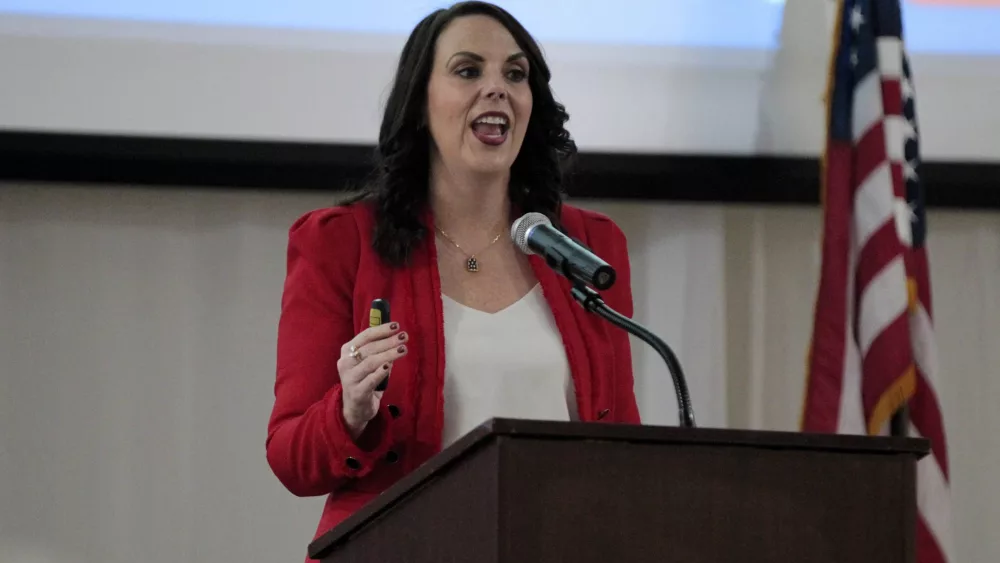
With all eyes on the 60-day 2024 Kentucky General Assembly session and the Commonwealth’s biennium budget, state leaders in business and commerce will be looking to actively galvanize around record economic growth and the continued positive rebound against the pandemic.
Urging advocacy and public policy, this was the cogent message from Kentucky Chamber of Commerce President/CEO Ashli Watts — who was on hand for Thursday morning’s Christian County Chamber of Commerce Legislative Breakfast in Hopkinsville.
Political affiliations aside, Watts said Kentucky finds itself looking to improve in 10 wide-ranging big-picture priorities. Ten subjects, she noted, that anyone in either aisle can agree upon, and they include:
— Tax Reform
— Population Growth
— Education
— Workforce
— Infrastructure
— Affordability
— Quality of Life
— Signature Industries
— Health Outcomes
— and Economic Development
This, she said, is now “Kentucky’s Winning Strategy.”
Watts noted Kentucky’s pro-growth policies loom large over the last half-decade, and include tax reforms in four of the last five years, a retooling of worker’s compensation in 2018, the state’s lauded “Right to Work” platform in 2017, the phasing out of the state’s bourbon barrel tax beginning in 2026, and the legalization of sports wagering this past September.
Furthermore, she assured Kentucky lawmakers are preparing to embrace another half percentage point lowering of the state’s income tax, down to 4% — something that could eventually trickle to zero if other state revenue streams meet certain benchmarks.
Locally, Watts said Christian County and its tangential communities will soon be able to embrace the “Military Hiring Academy.”
Provided by the Foundation’s Workforce Center, and under the guidance and advice from Hopkinsville and Fort Campbell officials, Watts said business leaders across the Commonwealth can venture to nearby military installations and attend one-day training sessions — for closer looks at what the future means for service members returning to civilian life, and the best practices for finding, hiring and retaining this highly-qualified talent pool.
Kevin Courtois, executive director of congressional & public affairs for the U.S. Chamber of Commerce, broadened Thursday’s discussion scope even further — noting that infrastructure, the development of digital semiconductors, pragmatic legislation and relieving the debt ceiling have been federal foci.
Improving the workforce population, he added, has also become a serious talking point. Currently, the U.S. has 9.6 million jobs open and only 6.5 million Americans available to fill them. In Kentucky, he noted this ratio is slightly better — 111,000 jobs open and 82,000 citizens available to take them.
One unique perspective on this problem isn’t the perceived laziness and post-COVID lag. It’s the country’s continued declining birth rate.
Courtois also noted that immigration reform hasn’t been addressed since the 1990’s, and that 1-of-5 working Americans is impacted by country’s international trading practices.







